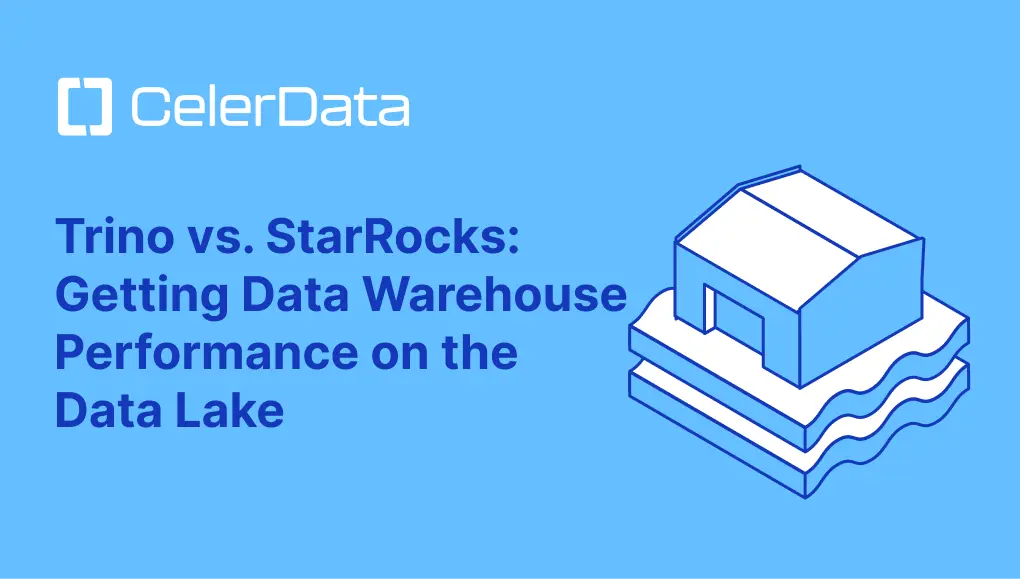
DataOps

Join StarRocks Community on Slack
Connect on SlackWhat Is DataOps
DataOps is a methodology that enhances data management. Organizations use DataOps to improve data analytics and operations. DataOps integrates technical practices, workflows, and cultural norms. The approach promotes rapid innovation and experimentation. Organizations can deliver insights quickly with DataOps. High data quality and minimal error rates are core capabilities of DataOps.
The concept of DataOps emerged from the need for better data management. Organizations faced challenges with traditional data processes. DataOps evolved by drawing inspiration from Agile development and DevOps. Agile development facilitates collaboration and responsiveness. DevOps focuses on automation and efficiency. DataOps combines these principles to transform data analytics.
Core Principles of DataOps
Collaboration and communication
Collaboration is a core capability of DataOps. Teams work together to achieve common goals. Communication ensures that everyone understands the data processes. DataOps fosters a culture of openness and transparency. Teams share information freely to improve data quality. Effective communication reduces errors and enhances productivity.
Integration and automation
Integration is another core capability of DataOps. DataOps connects different systems and tools seamlessly. Automation streamlines data processes and reduces manual tasks. Automated workflows enhance efficiency and accuracy. Organizations can achieve faster time-to-insight with automation. DataOps ensures that data flows smoothly through the pipeline.
Key Components of DataOps
Data Pipeline Management
Design and architecture
Data pipeline management plays a crucial role in DataOps. You must focus on the design and architecture of data pipelines. A well-structured pipeline ensures efficient data flow. Data travels from source to destination without interruption. Effective design minimizes bottlenecks and enhances performance. Organizations should prioritize scalability in pipeline architecture. Scalability allows data systems to handle increasing volumes. Flexibility in design accommodates diverse data sources. DataOps emphasizes adaptability in pipeline structures. Adaptable pipelines support evolving business needs.
Monitoring and optimization
Monitoring is essential for maintaining data pipeline health. Continuous monitoring detects anomalies and errors promptly. Early detection prevents data loss and corruption. Optimization improves the efficiency of data operations. You should regularly assess pipeline performance metrics. Performance assessments identify areas for improvement. DataOps encourages proactive optimization strategies. Proactive strategies enhance data processing speed. Efficient pipelines reduce time-to-insight for organizations. Monitoring and optimization ensure reliable data delivery.
Data Quality and Governance
Ensuring data accuracy
Data quality is fundamental to successful DataOps. Accurate data forms the basis for sound decision-making. You must implement measures to ensure data accuracy. Validation checks verify data integrity at each stage. Data cleansing removes inaccuracies and inconsistencies. Organizations should establish data quality standards. Standards guide the maintenance of high-quality data. Regular audits assess compliance with quality benchmarks. DataOps prioritizes accuracy in data operations.
Compliance and security measures
Compliance is vital in data governance. Organizations must adhere to regulatory requirements. Compliance ensures ethical handling of sensitive data. Security measures protect data from unauthorized access. Encryption safeguards data during transmission and storage. Access controls limit data exposure to authorized personnel. DataOps integrates security into data operations. Secure practices build trust with stakeholders. Trust fosters confidence in data-driven decisions. Robust governance supports sustainable data management.
Benefits of Implementing DataOps
Improved Efficiency
Streamlined data processes
DataOps transforms data processes into efficient operations. Teams can automate repetitive tasks. Automation reduces manual intervention. Streamlined processes enhance productivity. Data moves smoothly through the pipeline. The organization experiences fewer delays. Operations become more predictable and reliable.
Faster time-to-insight
DataOps accelerates the journey from raw data to insights. Teams can quickly analyze data. Rapid analysis leads to faster decision-making. Organizations gain a competitive edge. The ability to respond swiftly to market changes increases. Operations benefit from timely information. Timely insights drive strategic actions.
Enhanced Data Quality
Reduction in errors
DataOps significantly reduces errors in data operations. Error detection mechanisms identify issues early. Early identification prevents data corruption. Teams implement validation checks. Validation ensures data integrity at every stage. Accurate data supports sound decisions. Reliable operations build trust with stakeholders.
Consistent data outputs
DataOps ensures consistent data outputs across operations. Standardized processes maintain uniformity. Consistency enhances data reliability. Reliable data forms the foundation for analytics. Organizations achieve dependable results. Consistent outputs support informed strategies. Operations benefit from stable data quality.
DataOps vs. DevOps
Similarities
Shared principles and practices
DataOps and DevOps share foundational principles. Both methodologies focus on improving processes. Teams in both areas aim for efficiency and quality. Collaboration is a key element in both practices. Teams work together to achieve shared goals. Continuous improvement drives success in both fields. DataOps and DevOps emphasize iterative development. Feedback loops play a crucial role in both methodologies. Teams use feedback to enhance processes and outcomes.
Focus on automation and collaboration
Automation is central to both DataOps and DevOps. Automated processes reduce manual tasks. Efficiency increases with automation in place. Teams can focus on strategic activities. Collaboration enhances the effectiveness of both methodologies. Teams communicate openly to solve problems. Cross-functional teams bring diverse expertise. Collaboration leads to innovative solutions. Automation and collaboration improve overall performance.
Differences
Domain-specific applications
DataOps and DevOps serve different domains. DataOps focuses on data management and analytics. Organizations use DataOps to optimize data workflows. DataOps ensures high-quality data outputs. DevOps applies to software development and deployment. Software teams use DevOps to streamline releases. DevOps enhances the speed of software delivery. Each methodology addresses unique industry needs.
Unique challenges and solutions
DataOps and DevOps face distinct challenges. DataOps deals with data quality and governance issues. Teams implement measures to ensure data accuracy. Compliance and security are critical in DataOps. DevOps encounters challenges in software integration. Teams address compatibility and deployment issues. DevOps emphasizes testing and monitoring. Each methodology offers tailored solutions. Solutions address specific challenges in each domain.
Best Practices for Implementation
Steps to adopt DataOps
Adopting DataOps requires a strategic approach. Organizations should follow specific steps to implement DataOps effectively. First, establish a DataOps team with skilled data engineers and data scientists. This team will lead the DataOps journey within the organization. Next, develop a DataOps framework that aligns with business goals. The framework should include data automation and integration processes. DataOps automation software plays a crucial role in streamlining operations. Organizations should explore Qlik Data Integration for its automation capabilities. The Data Journey Manifesto provides guidance on adopting DataOps practices.
Common pitfalls to avoid
Avoiding common pitfalls ensures successful DataOps implementation. Organizations should be aware of potential challenges in the DataOps journey. One common pitfall is neglecting data quality measures. Data quality affects DataOps outcomes significantly. Organizations must prioritize data quality throughout the process. Another pitfall is inadequate communication within the DataOps team. Effective communication is essential for collaboration and success. DataOps engineers should eliminate data silos and foster teamwork. The Chief Data Officer should oversee the DataOps strategy. The Guide for DataOps Tools offers insights into avoiding these pitfalls.
Industrial DataOps
Application in Manufacturing
Enhancing operational efficiency
Industrial DataOps transforms manufacturing processes. Factories use data to optimize production lines. Data analytics identify bottlenecks in workflows. Managers implement solutions to reduce downtime. Automation tools streamline repetitive tasks. Machines operate at peak performance levels. Industrial DataOps provides real-time monitoring. Sensors collect data on equipment status. Maintenance teams receive alerts for potential issues. Proactive maintenance prevents costly breakdowns. Factories achieve higher output with fewer resources.
Data-driven decision-making
Industrial DataOps empowers decision-makers. Managers access accurate data for strategic planning. Data insights reveal market trends and customer preferences. Teams develop products that meet consumer demands. Sales forecasts guide inventory management. Companies avoid overproduction and stock shortages. Data analytics support supply chain optimization. Logistics teams track shipments in real-time. Efficient routes reduce transportation costs. Industrial DataOps depends on reliable data sources. Decision-makers rely on data for competitive advantage.
Benefits of Industrial DataOps
Improved data quality
Industrial DataOps enhances data quality. Factories implement validation checks for accuracy. Data cleansing processes remove inconsistencies. High-quality data supports reliable analytics. Accurate information drives informed decisions. Quality assurance teams monitor data integrity. Continuous improvement ensures data reliability. Industrial DataOps fosters a culture of excellence. Teams prioritize data accuracy in operations. Reliable data builds trust with stakeholders.
Increased productivity
Industrial DataOps boosts productivity. Automation reduces manual labor in factories. Workers focus on value-added tasks. Efficient processes minimize waste and delays. Production schedules align with demand forecasts. Factories meet delivery deadlines consistently. Data analytics identify areas for improvement. Teams implement strategies to enhance efficiency. Industrial DataOps creates a competitive edge. Companies achieve higher output with existing resources. Productivity gains lead to increased profitability.
Conclusion
DataOps plays a crucial role in modern data management. Organizations benefit from improved efficiency and enhanced data quality. DataOps practices lead to faster insights and better decision-making. You should explore DataOps further for organizational growth. Implementing DataOps practices offers significant advantages. Organizations can achieve high-quality data outputs with minimal errors. Consider adopting DataOps to streamline data processes. DataOps fosters collaboration and innovation within teams. Embrace DataOps to stay competitive in a data-driven world.



.jpg)